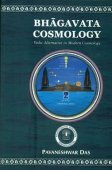Limited understanding: 1 definition
Introduction:
Limited understanding means something in Hinduism, Sanskrit. If you want to know the exact meaning, history, etymology or English translation of this term then check out the descriptions on this page. Add your comment or reference to a book if you want to contribute to this summary article.
In Hinduism
Shaivism (Shaiva philosophy)
Source: ORA: Amanaska (king of all yogas): (Shaivism)Limited Understanding is denoted by the Sanskrit term Mitahṛdaya.—In his commentary to the Svacchandatantra (11.197), Kṣemarāja provides the following definition: “Kuhaka is that which causes astonishment and convinces those of limited understanding (mitahṛdaya). It is chiefly magic”. In his commentary on the Netratantra (18.89), Kṣemarāja glosses kuhakāni as: “Deceitful (things) such as amulets of control, witches, etc.”. These glosses affirm that kuhaka can be understood more specifically to mean an astonishing, magical feat rather than its general sense of something that causes astonishment, the latter definition being that of Dhātupāṭha 10.443.

Shaiva (शैव, śaiva) or Shaivism (śaivism) represents a tradition of Hinduism worshiping Shiva as the supreme being. Closely related to Shaktism, Shaiva literature includes a range of scriptures, including Tantras, while the root of this tradition may be traced back to the ancient Vedas.
See also (Relevant definitions)
Partial matches: Limit, Understanding.
Query error!
Full-text (+54): Mita, Mitahridaya, Pushti, Kalki, Vaiyasa, Brahmasiddhantasamhita, Trailokyamohanatantra, Vishvamitriya, Vamanatantra, Sattvakhyasamhita, Vishvamitriyasamhita, Candramasasamhita, Tantrasagarasamhita, Vaiyasasamhita, Narayanakhyasamhita, Taijodravinasamhita, Vishnupurvasamhita, Vishnurahasyasamhita, Yogihridayasamhita, Ushanasasamhita.
Relevant text
Search found 12 books and stories containing Limited understanding; (plurals include: Limited understandings). You can also click to the full overview containing English textual excerpts. Below are direct links for the most relevant articles:
Yoga Vasistha [English], Volume 1-4 (by Vihari-Lala Mitra)
Chapter XL - Resuscitation of prahlada < [Book V - Upasama khanda (upashama khanda)]
Chapter LXX - The words of the creator of worlds in the mundane stone < [Book VII - Nirvana prakarana part 2 (nirvana prakarana)]
Sri Krishna-Chaitanya (by Nisikanta Sanyal)
Chapter 11 - Unrecognised Direct Manifestation < [Volume II]
Chapter 4 - Comparative Study of Religion < [Volume I - Introductory]
Chapter 1 - Object and Method < [Volume I - Introductory]
Consciousness in Gaudapada’s Mandukya-karika (by V. Sujata Raju)
All Dharmas (entities) are beginningless and unattached < [Chapter 6: A Study of Māṇḍūkya Kārikā: Alātaśānti Prakaraṇa]
The non-originated, non-relational, ever-enlightened Consciousness < [Chapter 6: A Study of Māṇḍūkya Kārikā: Alātaśānti Prakaraṇa]
Harivamsha Purana (by Manmatha Nath Dutt)
Chapter 19 - Bharadvaja’s Family < [Book 1 - Harivamsa Parva]
Chapter 43 - Krishna Meets His Enemy < [Book 2 - Vishnu Parva]
The Malaysian Journal of Medical Sciences
Parental Role as Interpreter in Child's Hospitalization: Burden or Benefit? < [v.31(1): 1–244 2024 Feb]
HIV-Related Stigma and Discriminatory Attitudes among a Semi-Urban Population < [v.22(5): 1–102 2015 Sep]
Passion and Courage in Experienced Male Soccer Players < [v.27(4): 1–158 2020 Jul]
Bhagavad-gita (with Vaishnava commentaries) (by Narayana Gosvami)
Verse 9.11 < [Chapter 9 - Rāja-guhya-yoga (Yoga through the most Confidential Knowledge)]
Related products
